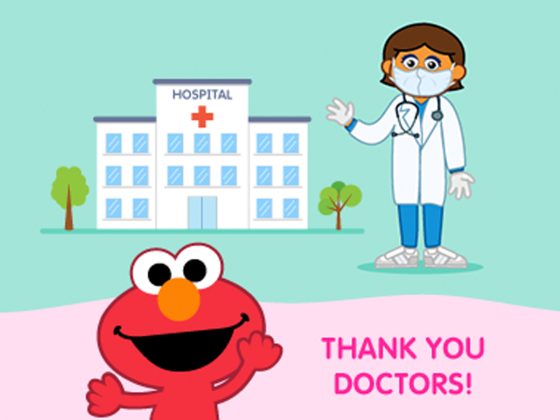
Recognizing and Overcoming Stigma
Everyone deserves kindness and empathy, especially people who have, have had, or are at high risk for Covid.
What is stigma and why does it happen?
Social stigma involves negative attitudes and beliefs about certain people, places, or things. Stigma can can lead to discrimination and other hurtful behavior, and stigma hurts everyone. It can also make it harder for people to get the medical care they need.
In stressful situations like these, people may feel fear, anxiety, or confusion. Negative emotions like these, paired with lack of information, can unfortunately lead to unkind or unfair thoughts, including blaming thoughts, about others.
How can I help?
Address Big Feelings
If you, your child, or someone you know is experiencing stigma, acknowledge their feelings and do your best to offer comfort. Let them know that they are important and loved. Remind them that you’re here for them to talk and listen.
Keep Learning
You may have heard that knowledge is power, and when it comes to reducing stigma, that’s definitely the case. Misinformation can be one reason that people feel afraid and say or do hurtful things. It can help to keep learning the facts, and to maintain an attitude of openness, curiosity, and compassion. Consider these suggestions:
- Rely on trusted sources for information.
- Share facts about how to stay healthy.
- Model best practices for mask wearing, hand washing, and distancing.
- Keep an open mind about others and remember that each family will need to decide what’s best for them.
- Show compassion and offer support to those who are more closely impacted by the virus.
Be Kind to All
It’s especially important for grown-ups to encourage—and model—showing kindness and compassion toward all people, especially those who may have or have had coronavirus or those people in our communities who may be at higher risk for exposure. Review the ideas in the picture, then consider these suggestions:
- Give a wave. Hugs and handshakes might not be possible, but a big wave to say hello can let someone know you see them and care about them. Try waving in new ways: wave your “trunk” like an elephant, give an air-five, or invite others to join you in a community wave, as if you were at a sporting event!
- Say thank you. Healthcare workers, responders, shop clerks, delivery drivers, and others are all working hard to keep our communities running. They may also be at more risk for exposure to the virus, and therefore, to stigma. When you can, express your appreciation for their hard work.
- Pick up the phone. A phone or video call can really turn someone’s day around, especially if they are or have been sick.
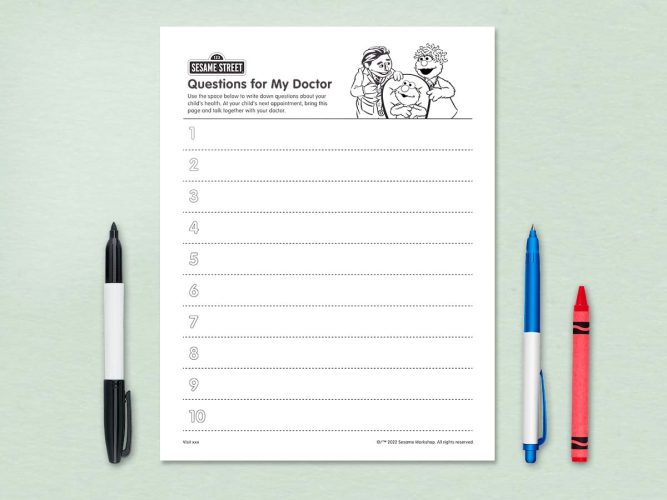
Questions for My Doctor
A place for parents and children to list questions for their doctor.

Elmo’s Bravery Bandage
A coloring page to help celebrate a child’s bravery when getting a shot.
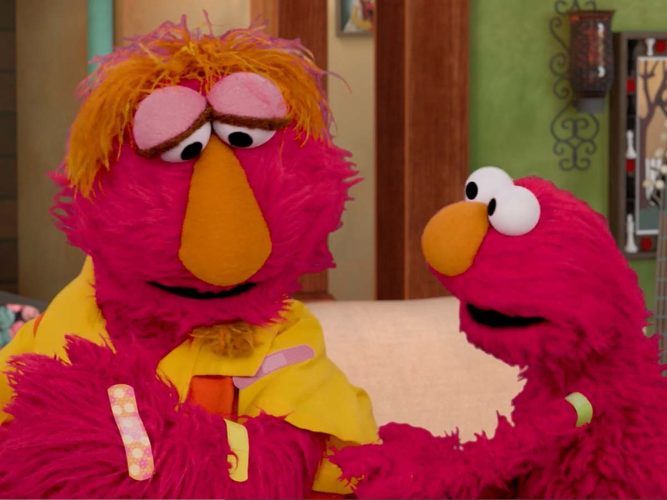
Elmo Gets the Covid-19 Vaccine
Elmo and Louie share their experience with the COVID-19 vaccine.
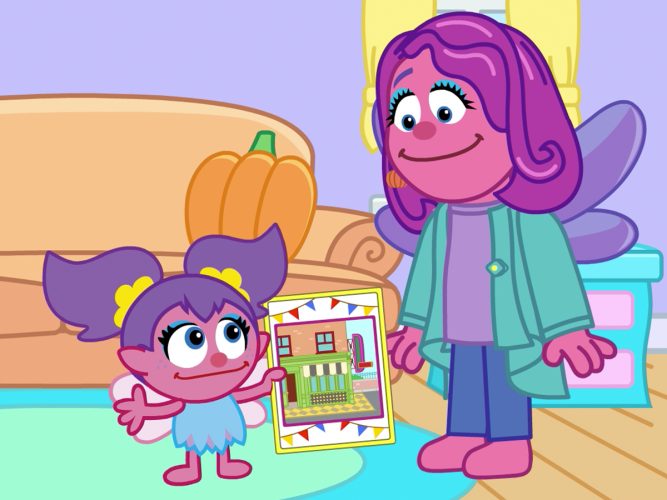
Hooper’s Store Reopens
As communities open up, together we can adjust to a new way of doing things—while keeping everyone safe.
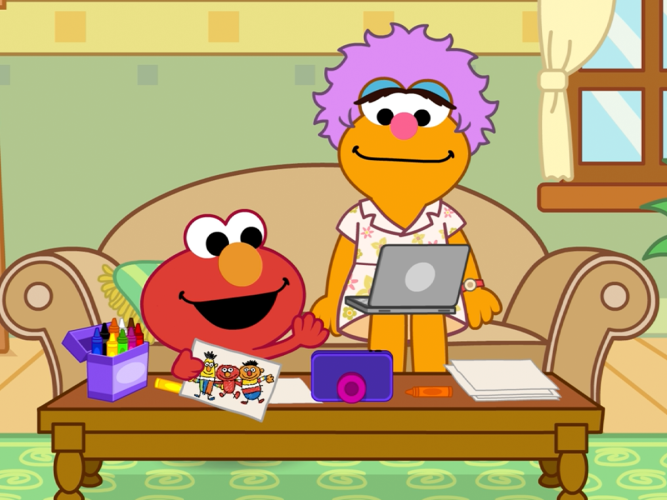
When Children Miss Their Friends
There are ways to stay connected with people we love...safely.
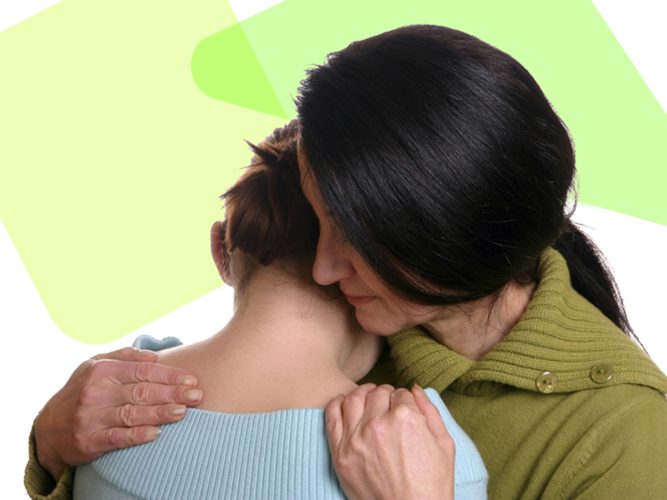
Helping Children Through Grief Related To COVID-19
There are ways to help families talk about death, express their feelings, and grieve together.
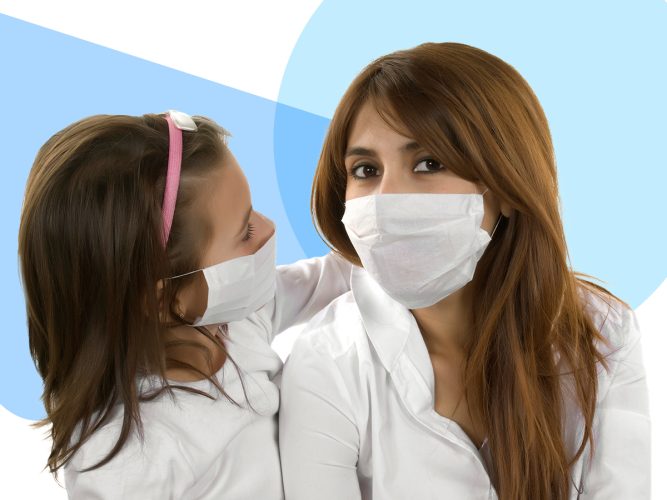
Good Questions (and Answers) About Covid-19 Vaccines
Common questions children ask about vaccines, and possible answers.
